- Clone
- CTD110.6 (See other available formats)
- Regulatory Status
- RUO
- Other Names
- O-Linked N-Acetylglucosamine
- Isotype
- Mouse IgM, κ
- Ave. Rating
- Submit a Review
- Product Citations
- publications
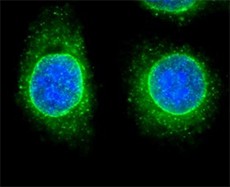
-

Immunofluorescence staining of CTD110.6 on methanol fixed HeLa cells at 10 µg/ml. Following fixation, the cells were incubated with the primary antibody for one hour at room temperature, followed by incubation with goat anti-mouse IgM Alexa Fluor® 488 secondary antibody (green). The cells were counterstained with DAPI (blue). -

IHC staining of CTD110.6 on formalin-fixed paraffin-embedded human pancreas tissue. Following sodium citrate antigen retrieval, the primary antibody was incubated for 60 minutes at room temperature at 10 µg/ml. BioLegend’s Ultra Streptavidin (USA) HRP Detection Kit was used for detection with DAB chromogen. -

Paraffin-embedded neonatal mouse lung sectioned and stained with purified anti-O-GlcNAc (green, clone CTD110.6), anti-RAGE (red) and DAPI (blue). Image generously submitted to the 2017 Cell Life Imaging Competition by Pragnya Das from Drexel University College of Medicine.
| Cat # | Size | Price | Quantity Check Availability | Save | ||
|---|---|---|---|---|---|---|
| 838004 | 100 µg | 278€ | ||||
β-O-linked N-acetylglucosamine (O-GlcNAc) is an abundant post-translational modification occuring on serine and threonine residues. The modification has been detected on a variety of nuclear and cytoplasmic proteins involved in diverse cellular functions. Studies to elucidate the role of O-GlcNAc-ylation have been hampered by the lack of a sensitive, specific assay to identify or purify proteins bearing O-GlcNAc.
Product DetailsProduct Details
- Verified Reactivity
- All Species
- Antibody Type
- Monoclonal
- Host Species
- Mouse
- Immunogen
- The antibody was raised against a synthetic peptide containing Serine-O-GlcNAc.
- Formulation
- Phosphate-buffered solution, pH 7.2, containing 0.09% sodium azide.
- Preparation
- The antibody was purified by affinity chromatography.
- Concentration
- 0.5 mg/mL
- Storage & Handling
- The antibody solution should be stored undiluted between 2°C and 8°C.
- Application
-
WB - Quality tested
ICC, IHC-P - Verified
IP - Reported in the literature, not verified in house - Recommended Usage
-
Each lot of this antibody is quality control tested by western blotting. For immunocytochemistry, a concentration range of 2.5 - 10 μg/mL is recommended. For immunohistochemical staining on formalin-fixed paraffin-embedded tissue sections, the suggested use of this reagent is 1.0 - 10 µg/mL. It is recommended that the reagent be titrated for optimal performance for each application.
- Application Notes
-
This antibody detects Ser-O-GlcNAc and Thr-O-GlcNAc but shows no cross-reactivity with peptide determinants or other closely-related carbohydrate antigens. Interaction between the antibody and the Ser- or Thr-O-GlcNAc epitope can be blocked by competition with free GlcNAc. Milk proteins may cross-react with the antibody therefore we recommend using BSA or goat serum as a blocker.
Additional reported applications (for the relevant formats) include: ELISA2, immunocytochemistry7, immunoprecipitation2,5,6, and Western blotting3,4,7. -
Application References
(PubMed link indicates BioLegend citation) -
- Comer FI, et al. 2001. Anal. Biochem. 293:169.
- Hart GW, et al. 1995. Adv. Exp. Med. Biol. 376:115. (ELISA, WB, IP)
- Anthonisen EH, et al. 2010. J. Biol. Chem. 285:1607. (WB)
- Dias WB, et al. 2009. J. Biol. Chem. 32:21327. (WB)
- Wang Z, et al. 2007. Mol. Cell Proteomics 8:1365. (IP)
- Kim SJ, et al. 2003. J. Biol. Chem. 43:41890. (IP)
- Kneass ZT, Marchase RB. 2004. J. Biol. Chem. 44:45759. (WB, ICC, IF)
- Product Citations
-
- RRID
-
AB_2629520 (BioLegend Cat. No. 838004)
Antigen Details
- Structure
- 1046 amino acids with a molecular weight of 117 kD.
- Distribution
-
Cytosol, mitochondrion, nucleus, plasma membrane, and cytoskeleton.
- Function
- Catalyzes the transfer of a single N-acetylglucosamine from UDP-GlcNAc to a serine or threonine residue in cytoplasmic and nuclear proteins resulting in their modification with a beta-linked N-acetylglucosamine (O-GlcNAc), Glycosylates a large and diverse number of proteins including histone H2B, AKT1, EZH2, PFKL, KMT2E/MLL5, MAPT/TAU and HCFC1, Can regulate their cellular processes via cross-talk between glycosylation and phosphorylation or by affecting proteolytic processing.
- Biology Area
- Cell Biology, Transcription Factors
- Gene ID
- 8473 View all products for this Gene ID
- UniProt
- View information about O-GlcNAc on UniProt.org
Related Pages & Pathways
Pages
Related FAQs
Other Formats
View All O-GlcNAc Reagents Request Custom Conjugation| Description | Clone | Applications |
|---|---|---|
| Purified anti-O-GlcNAc | CTD110.6 | WB,ICC,IHC-P,IP |
Customers Also Purchased
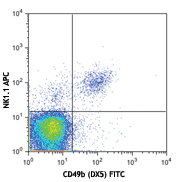
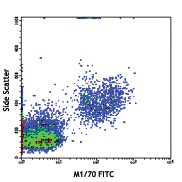
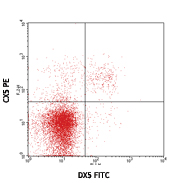
Compare Data Across All Formats
This data display is provided for general comparisons between formats.
Your actual data may vary due to variations in samples, target cells, instruments and their settings, staining conditions, and other factors.
If you need assistance with selecting the best format contact our expert technical support team.
 Login / Register
Login / Register 




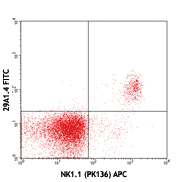
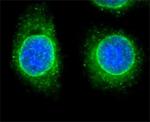
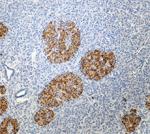
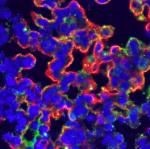



Follow Us